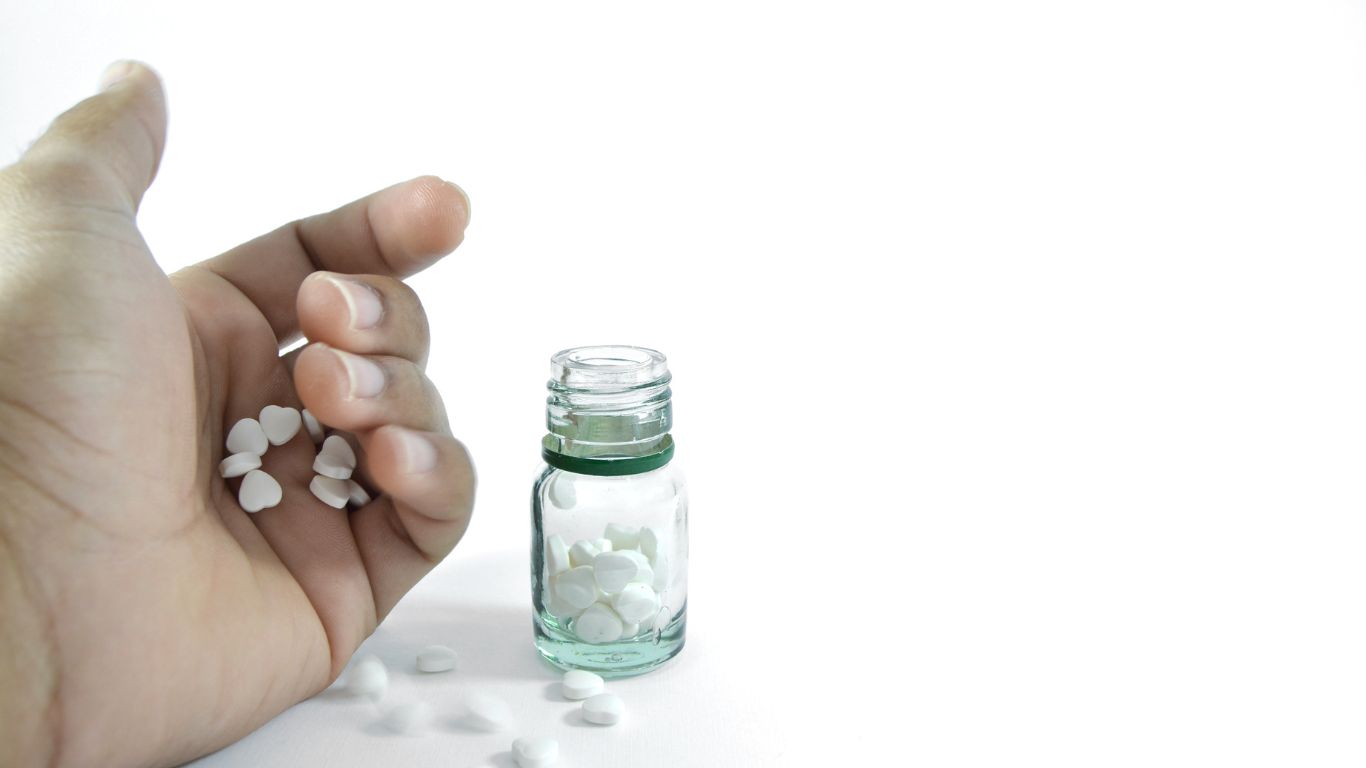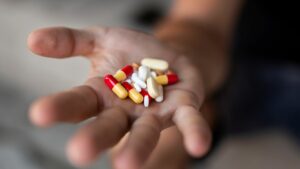What Happens to Your Brain and Body When You Overdose on Drugs?
America is in the midst of an opioid epidemic. Overdose is when someone takes a critically toxic amount of an illicit or prescription drug or mixes multiple drugs. When someone experiences opioid overdose from substance abuse of pain medications, the body reacts in multiple ways to the large number of drugs in the system. The person overdosing may feel confused or act like they’re in a stupor. They may experience a lack of consciousness. Their heart rate may slow and they may have difficulty or have stopped breathing. They may vomit, have low body temperature, or lose skin color. They may seize or experience respiratory arrest. Drugs like opiates dampen people’s nervous systems to the point of lethal concern. Overdoses are always a medical emergency and have grown in number as a public health and mental health crisis. If you think someone is overdosing, call 911 immediately.
How to Recognize the Signs and Symptoms of Drug Overdose
The risk of overdosing is always present with substance abuse. Many opioid overdose deaths can be prevented by learning the principles of harm reduction. Recognizing six primary symptoms of overdose on drugs are a strong indication that someone is in immediate danger of overdose death and needs emergency medical services.
- Unresponsive to Stimuli: The individual may appear to be awake, but they will not respond to noise, being shaken, or feeling pain.
- Loss of Consciousness: Different from “passing out,” people who are overdosing and unconscious will not respond to movement or pain at all.
- Hyperventilation, Difficulty Breathing, or Stopping Breathing: Changes in breathing are a significant indication someone is in danger of overdose and there is a chance of heart attack.
- Cold and/or Blue-Tinged Skin: Lowered body temperature or skin color turning purple or blue are signs your body is not getting enough oxygen.
- Seizures or Convulsions: Anyone under the influence of an illicit drug, prescription drug, or alcohol who begins seizing or convulsing is almost certainly overdosing. Do not try to restrain them, make sure their airway is clear, try to put something under their head like a towel, jacket, or blanket to lessen impacts on the ground, and clear the space around them so they do not hurt themselves or others in the process.
- Cardiovascular Symptoms: These symptoms are harder to physically observe, but significantly high or low heart rate or blood pressure, chest pain, or heart attack and stroke are strong signs of an overdose.
Overdose death is always tragic and preventable. If you or anyone you know are drug abusers, there is a danger of stimulant overdose death. Look for the previous warning signs to know when emergency medical care for illicit drug use could save someone’s life. Encourage someone who has survived a drug overdose to seek out addiction treatment programs.
Can Drug Overdoses Cause Permanent Damage?
Symptoms of an overdose can vary widely depending on which drug was used for substance abuse. After an overdose, an addict could be at risk for chronic disease of the liver, brain damage, breathing problems, depression, anxiety, and the possibility of relapse. The best chance at relapse prevention and avoiding opioid overdose is to avoid overdosing and seek treatment at a rehab center.
Preventing Fatal Drug Overdoses
Whether you or someone you know struggles with drug abuse or alcohol addiction, knowing how to prevent a fatal overdose could be the difference in saving someone’s life. Unfortunately, the opioid epidemic claims many lives. Addiction treatment can reduce overdose deaths in the long run, but there are ways to curb the risk of overdosing immediately. Harm reduction tactics can save many lives and aid in public health.
Naloxone/Narcan
Carrying these opioid antagonists and learning how to administer them during a morphine or heroin overdose could counteract a life-threatening attack on the central nervous system and respiratory system.
Use Drugs With Another Person Present
If someone is deep within the throes of their addiction and doesn’t yet know how to stop taking drugs or alcohol, if a sober person is at least with them while they use drugs, an overdose could be prevented by someone able to get the abuser’s help.
Fentanyl Test Strips
Fentanyl is a synthetic opioid many times more potent than heroin and has a high danger of overdose if even a small amount is used, even unknowingly. Fentanyl test strips can identify the presence of fentanyl in unregulated drugs. They can be used to test injectable drugs, powders, and pills.
Get Help for Drugs and Alcohol
The surest way to prevent an overdose is through abstinence and recovery. TruPath offers a complete continuum of care from detox to inpatient and outpatient treatment, with holistic interventions focused on dual diagnosis, which looks at the mental health factors in drug users. While in our treatment programs, our clients have access to medical care, targeted therapy, and a variety of recovery opportunities at our healthcare facility. Contact TruPath for the best chance at drug overdose and relapse prevention success.

